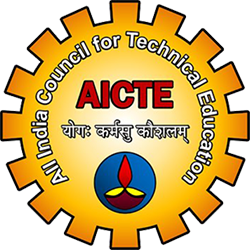
The journey through a two-year PGDM program is not always an easy ride, but one worth contemplating. Due to the demands of its course work, group assignments, internships and extracurricular activities, time management is key for any PGDM student who wants to balance academic and personal life successfully. Organisation, structure, proper time management and a balanced work schedule can make the difference as students strive to meet their tasks on time and simultaneously have personal downtime and engagement in various activities. Time Management is a powerful tool to enhance productivity in learning as well as other academic and career related activities.
Why Time Management Matters in a PGDM Program
As a PGDM program, with a robust percentage of supervised training and adequate course material to cover, time management becomes critical to avoid feeling overwhelmed. Effective time management helps students:
Optimise Academic Performance: Students need to plan their study sessions well to get more time to finish all assignments on time and not feel any pressure from last-minute cramming.
Maintain a Work-Life Balance: Amidst heavy academic requirements, time management allows students to find time for personal pursuits, mental well-being and social interactions.
Build Career-Ready Skills: By managing time well, students hone skills critical to attain business success, such as prioritisation, focus and stress management.
In essence, good time management is not only a way to excel in school, but also a fundamental skill for future professional environments.
Prioritising Goals: Academic, Professional and Personal
Managing one’s timetable when doing a PGDM means mastering the act of prioritising learning. The sheer volume of tasks can feel overwhelming; so the key is to establish a clear hierarchy of goals across three main areas, mostly academic, professional and personal.
Academic Priorities: Regular study, project deadlines and assignments require focused time. Breaking down larger projects into smaller, manageable tasks can simplify the process and make studying feel less daunting.
Professional Development: Internships, networking events and resume-building activities are all essential for career preparation, yet they should be balanced to avoid overshadowing academic responsibilities.
Personal Life and Self-Care: Staying connected with family members, physical exercise and engaging in personal interests are helpful for mental health and establishing a life that is more satisfying and less stressful; these lead to increased efficiency at work.
In planning the schedule for each area, PGDM students should be able to set realistic goals to be able to adequately meet organisational and personal obligations, as well as future career goals.
Adopting Techniques for Staying Focused
Staying productive requires focus and attention, both of which can be bolstered by a few effective techniques:
The Pomodoro Technique: This widespread strategy implies applying 25-minute work segments with 5-minute breaks improving students’ concentration without exhaustion.
Time Blocking: By assigning specific blocks of time to each major task—such as studying, group projects or internship work—students can maintain a structured day that reduces distraction, while maximising output.
Batching Small Tasks: Administrative tasks, like contributing to group projects or organising notes, can be grouped and tackled together, saving mental energy for more demanding assignments.
Each of these techniques can be adapted to personal preferences, but the aim is to maximise periods of intense focus and reduce the time spent multitasking or being interrupted by minor distractions.
Balancing Work and Well-Being
Even though many people are focused on their courses and their jobs, the general well-being of a person must never be ignored. Consequently, it becomes crucial to create time for reflection on one's personal wellbeing.
Exercise and Physical Health: Just 20-30 minutes of physical activity can help regulate mood, improve attention, increase endurance and cope with stress.
Mindfulness and Relaxation: Journaling or practising meditation is a way to minimise anxiety and improve the condition of the mind and emotions, ensuring a proper attitude towards academics and work.
Adequate Rest: 7- 8 hours of night’s sleep will enhance memory, focus, as well as productivity, thus preventing the adverse effects of sleepless nights by students.
Sustaining these practices helps reach and retain high levels of energy and low levels of stress, as students manage their tight-packed schedules.
Conclusion
For PGDM students of Sparsh Global Business School, the techniques that help manage time effectively are goal prioritisation, time structuring, minimising distractions and personal care. It is crucial to build a productive routine and employ processes to withstand the pressure of the business world. Through this course, students enhance their time management skills that enforce student’s academic success as well as career success in the future.
FAQ:
1. Why is time management important in a PGDM program?
Time management helps PGDM students balance their intense academic workload, internships and personal life, preventing burnout and supporting academic accomplishments and future career goals.



